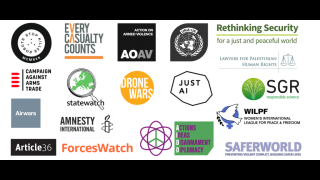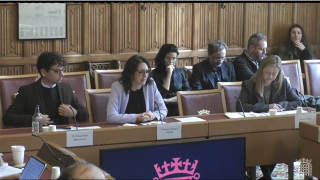
Killer robots
UNA-UK is calling for the UK to support the creation of a binding treaty to prohibit killer robots.
We are on the brink of a stark dehumanisation of warfare. Weapons must be kept under meaningful human control.
‘Killer robots’ is a colloquial term used to refer to lethal autonomous weapons systems. Rapid technological developments and defence sector investments are driving concerns that they will soon be a reality. While there is no agreed international treaty governing such weapons, nor even agreed definitions of terms such as autonomous, it is widely understood that these are weapons systems that would select and engage targets with potentially lethal force without the need for meaningful human control.
The development of these weapons could amount to a revolution in armed conflict with devastating humanitarian consequences as well as ethical, technical and legal challenges.
While it is positive that the UK’s position is that Britain “does not possess fully autonomous weapon systems and has no intention of developing them”, there are questions over the UK's permissive threshold for autonomy and it is highly problematic that the UK is opposed to members of the international community attempting to create a new global standard to enshrine a prohibition against killer robots in a clear and binding new international treaty.
The UK’s justification that existing International Humanitarian Law (IHL) is sufficient to regulate killer robots is at odds with UN guidance, fails to acknowledge variance across the international community in the interpretation of IHL and misses the opportunity to make a positive contribution to international peace and security.
The UK should start publicly supporting the objective of creating a new, global, legally binding instrument to prohibit weapons from operating without meaningful human control and state that it is willing to develop its current definition of lethal autonomous weapons systems in cooperation with the international community.






